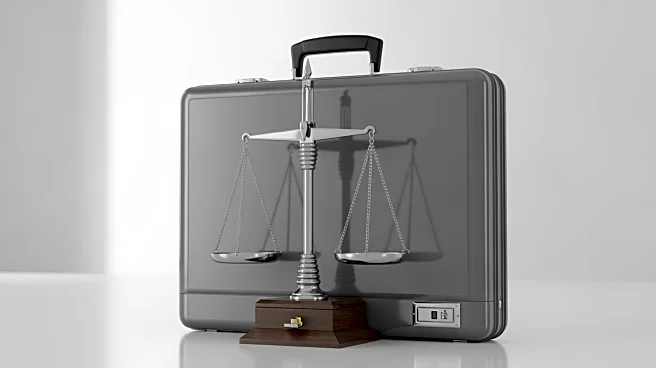What's Happening?
JPMorgan Chase is contesting the substantial legal fees incurred by Charlie Javice and Olivier Amar, who were convicted of fraud related to the sale of their financial aid startup, Frank, to the bank. The legal expenses have reached $115 million, with
Javice's lawyers billing $60.1 million and Amar's lawyers billing $55.2 million. JPMorgan argues that these fees are excessive and far exceed reasonable defense costs. The bank is seeking to end its obligation to cover these costs, which was part of the acquisition agreement when Frank was purchased in 2021. Javice and Amar were convicted of falsifying records to inflate the number of Frank's customers, misleading JPMorgan during the acquisition.
Why It's Important?
The case highlights the financial and legal complexities involved in corporate acquisitions, especially when fraud is discovered post-acquisition. JPMorgan's challenge to the legal fees underscores the potential financial burden on companies when dealing with legal disputes arising from acquisitions. The bank's stance may influence future agreements and negotiations in corporate acquisitions, particularly regarding indemnification clauses and legal fee coverage. This situation also reflects the broader implications for corporate governance and due diligence practices, as companies may need to reassess their strategies to prevent similar occurrences.
What's Next?
JPMorgan is preparing to present its case to the court, aiming to terminate the agreement to cover the legal fees of Javice and Amar. The court's decision could set a precedent for how legal fee disputes are handled in cases of corporate fraud. Stakeholders in the financial and legal sectors are likely to monitor the outcome closely, as it may impact future acquisition agreements and legal strategies. The bank's efforts to address what it considers 'abusive billing' could lead to changes in how legal costs are managed in similar cases.
Beyond the Headlines
The case raises ethical questions about the responsibility of companies to cover legal fees for executives involved in fraudulent activities. It also highlights the potential for legal systems to be exploited through excessive billing practices. The involvement of high-profile lawyers, such as Alex Spiro, adds another layer of complexity, as their reputations and previous cases may influence public perception and legal strategies. This situation may prompt discussions on the need for reforms in legal billing practices and corporate accountability.















